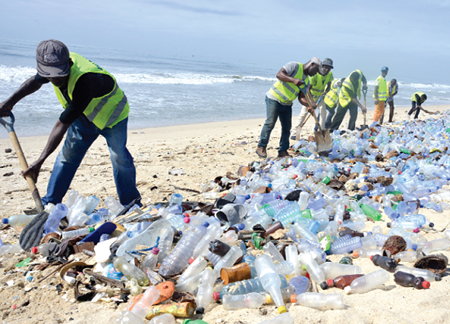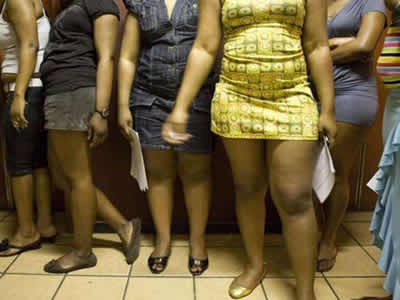Plastic Waste Is A Threat To Marine Life And Public health – Environmental Protection Agency
- Home
- Plastic Waste Is A Threat To Marine Life And Public health – Environmental Protection Agency

Plastic Waste Is A Threat To Marine Life And Public health – Environmental Protection Agency
 Mr John Pwamang, the Acting Executive Director of the Environmental Protection Agency, says plastic waste is a major threat to marine life and public health.
Mr John Pwamang, the Acting Executive Director of the Environmental Protection Agency, says plastic waste is a major threat to marine life and public health.
He said plastic menace had made the marine environment of the country dirty and unattractive.
Mr Pwamang who was speaking at a media briefing in Accra, urged the government and the public to support EPA’s plastic recycling initiative.
He said, “We have a lot of pollution at the beaches very close to the harbour so we have to look for how the government will advise on the plastic management policy that we have submitted. It doesn’t only deal with only plastic waste alone, but plastics in general”.
According to Mr Pwamang as part of the plastic programme, beverage companies would be required to provide a take-back scheme for the collection of public waste from their products.
“We have a provision that would enable us to get the producers of beverages to have an arrangement that requires them to take back all waste that comes out of your operations.”
Mr Pwamang disclosed that the EPA would soon roll out a state of the art recycling facility that would churn out public waste into useful products by environmentally wholesome methods.
Mr Pwamang said one of the major problems facing the EPA was the importation of second-hand products, which most of the goods were waste.
“The issue of second-hand goods is a very thorny issue. Our law does not prohibit the importation of second-hand goods and equipment; it prohibits the importation of waste. But you would agree that some of the goods that come as second hands are not useable,” he said.
Mr Pwamang called for the need to rectify goods classified as second-hand products by the country’s law and that the existing legislation was not clear.
“Studies have shown that 15 per cent of what is categorized as second-hand goods are waste products imported into the country,” he said.
“We have a broad law. We have to now come in with various regulations that would give effect to the various provisions of the law. Because the term second-hand goods is too vague,” he noted.
He stated that penalties which include huge fines, would be applied to all those who resort to importing old, hazardous products into the country to deter many more imports of the kind.
“We will impose penalties, and when people lose monies, they would not continue with the same act,” he said.
Mr Pwamang said that the 0.5 per cent of Free on Board charged on imports, as eco levy to fund the provision of resources for the EPA was inadequate.
The leadership of EPA, he said would engage the trade industry to revise the policy to make it more supporting of their mandate.
Source: GNA
- Share
Classic Ghana
Classic Ghana brings you into a fun world of arts, entertainment, fashion, beauty, photography, culture and all things in between. Let’s explore these together!







